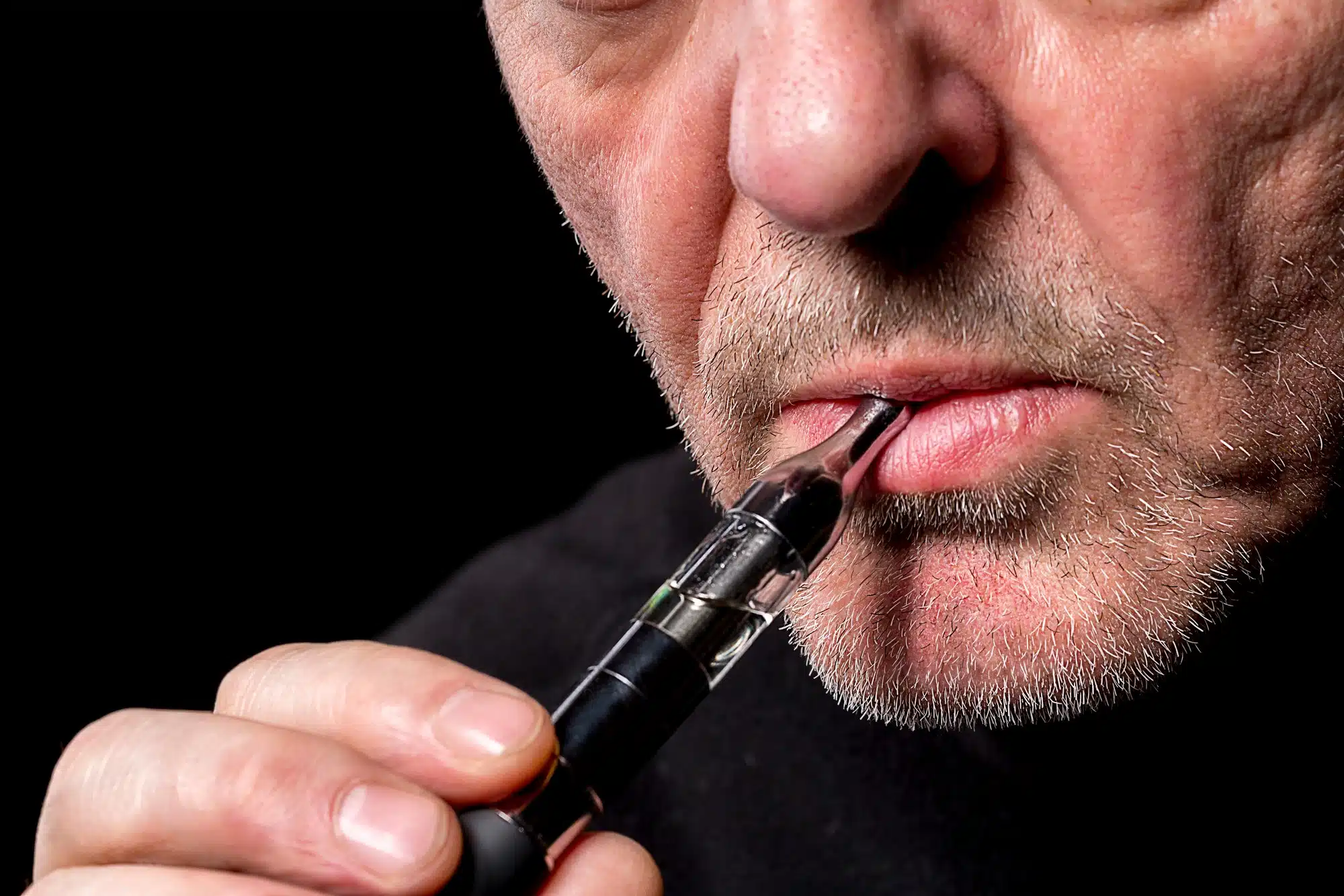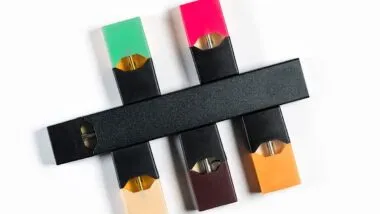
In an effort to perhaps better connect with lawmakers and health officials that have criticized its advertising strategy, e-cigarette maker JUUL has decided to move its headquarters from San Fransisco to Washington DC. Critics have blamed the rise in tobacco consumption on e-cigarette companies like JUUL, and this move to the East Coast is just one attempt by the company to weather the storm.
JUUL moving to DC does not mark the company’s total departure from San Fransisco, The Wall Street Journal explains. Its product and software development will remain in the area. However, the company is making an intentional shift away from Silicone Valley culture and the California laws that may block its aims.
According to The Wall Street Journal, San Fransisco banned the sale of e-cigarettes and JUUL moving to DC may have been the company’s attempt to move away from what the source calls a “growth-at-all-costs culture.” This attempt to more limited growth is reflected by choices made by the company’s new CEO, K.C. Crosthwaite.
Under Crosthwaite’s guidance, JUUL has restructured and reduced, rather than grown. This was reportedly done to ensure the company’s financial health over the long term. Previously, JUUL had expanded into Europe and Asia. Now, it’s dialing back these efforts, including extricating itself from markets in South Korea and possibly following suit in Belgium, Portugal, Spain, and Austria. Additionally, the company is considering reducing its presence in France.
Crosthwaite stresses that this does not represent “a retreat from the international market.” Instead, he says it’s “about setting the company up for long-term success. We will no longer scale for the sake of expansion.”
 Under the guidance of a new CEO, JUUL moving to DC signals the company’s attempt to reposition itself and connect favorably with regulators.
Under the guidance of a new CEO, JUUL moving to DC signals the company’s attempt to reposition itself and connect favorably with regulators.
Why Is JUUL Moving to DC?
JUUL moving to DC is a striking decision, given that the company’s new CEO hails from Big Tobacco, e-cigarettes’ biggest competitors, and the vape industry’s alleged similarities to Big Tobacco have been a source of criticism from lawmakers and health officials.
Previously, Crosthwaite was a senior vice president at Altria, the parent company of Phillip Morris. The San Fransisco Chronicle points out that JUUL has made many efforts to distance itself from Big Tobacco. Experts claim that these efforts occurred across companies in the e-cigarette industry, and included marketing e-cigarettes as smoking cessation tools, and downplaying their nicotine content.
However, in 2018, Altria bought 35 percent of JUUL for $12.8 billion. Philip Morris had taken its own stab at the vape market, producing the IQOS product, which the Chronicle calls a cross between a traditional cigarette and an e-cigarette. Reportedly, Crosthwaite succeeded in getting regulators to allow the product to be sold.
Articulating the significance of Crosthwaite’s leadership at JUUL, and the stakes of JUUL moving to DC, the Chronicle quoted a tobacco control researcher at the International Union Against Tuberculosis and Lung Disease as saying “What (Crosthwaite) can bring to JUUL is government relationships with the FDA.” The researcher, Gan Quan, Ph.D., went on to say what critics had suspected about JUUL’s advertising efforts: “JUUL is really aligning its strategies with tobacco companies … We know they’ve been following the playbook of tobacco companies.”
However, this change in leadership and move to Washington highlights a larger shift in JUUL’s positioning, says Quan. In his eyes, “this move is really sort of making the announcement that they don’t care about linking themselves with a tobacco company. They’re really sort of coming together.”
Bloomberg highlighted another way JUUL is aiming to strengthen its connections with regulators. Reportedly, Former Canadian Health Minister Ronda Ambrose has joined JUUL’s board. She also served as interim leader of Canada’s Conservative Party. Bloomberg reports that Crosthwaite praised the new board member’s “unique public health and regulatory experience” and stated that she would be an asset as the company attempts to reposition itself during its new approaches.
JUUL still maintains that the company’s mission is to end cigarette use, a sentiment echoed by Crosthwaite, while highlighting his “independence” from his previous Big Tobacco employer, Altria, according to the Chronicle. Health experts claim that the company used Big Tobacco’s ad strategies to corner a new tobacco market, teens, that was not already hooked on traditional cigarettes. Though the company allegedly aims to end cigarette use, some critics argue that JUUL’s products have only been effective in getting a new generation hooked on nicotine, pointing to the allegedly deleterious health effects of e-cigarettes.
This article is not legal advice. It is presented
for informational purposes only.
ATTORNEY ADVERTISING
Top Class Actions is a Proud Member of the American Bar Association
LEGAL INFORMATION IS NOT LEGAL ADVICE
Top Class Actions Legal Statement
©2008 – 2026 Top Class Actions® LLC
Various Trademarks held by their respective owners
This website is not intended for viewing or usage by European Union citizens.
E-mail any problems with this form to:
[email protected].












